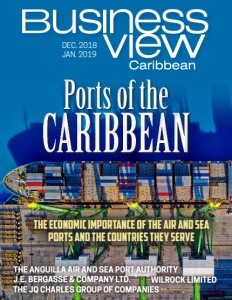A high-level delegation from Belize visited Australia’s Great Barrier Reef from November 26 to 30, 2018, to exchange best practices on leveraging their reef’s iconic World Heritage status, to protect their fragile ecosystems from climate impacts, and secure sustainable livelihoods, jobs and income for local communities. The visit follows a series of landmark conservation actions that led to the removal of the Belize Barrier Reef Reserve System from the List of World Heritage in Danger earlier this year.
As the world’s most extensive coral reef ecosystem, the Great Barrier Reef is a globally outstanding and significant entity. It was inscribed on the World Heritage List in 1981 and covers an area larger than Italy. The Belize Barrier Reef Reserve System is one of the most pristine reef ecosystems in the Western Hemisphere and was referred to as “the most remarkable reef in the West Indies” by Charles Darwin. It was inscribed on the UNESCO World Heritage List in 1996.
Each World Heritage property makes a significant contribution to its country’s economy. About 200,000 Belizeans – half of Belize’s population – are dependent on the reef for their livelihoods and 15 percent of the country’s gross domestic product (GDP) comes from the reef. The Great Barrier Reef generates on average 60,000 jobs and makes an annual contribution of 6.4 billion AUS dollars to Australia’s GDP.
“A sustainable use of our reef which brings jobs and income to the local community is essential if we wish to conserve our World Heritage site for future generations. We could not have done this without our prestigious World Heritage designation,” said Patrick Faber, Deputy Prime Minister of Belize.
The Belize delegation was led by Faber and joining them were representatives from Australia’s Ministries of Environment and Foreign Affairs and Trade. The delegation met with sustainable tourism operators and organizations, QLD government officials, scientists at the Australian Institute of Marine Sciences, the Great Barrier Reef Marine Park Authority, and other institutions.
Central to their discussion was an exchange of best practices in building sustainable reef communities. Both World Heritage sites share a desire to step up their leadership in building reef strategies that protect these fragile ecosystems in a rapidly changing climate, but, simultaneously, secure sustainable income for the communities that depend on them.
The visit marks a highlight of the 2018 International Year of the Reef, an initiative from the International Coral Reef Initiative (ICRI), jointly co-chaired by the governments of Monaco, Australia, and Indonesia until mid-2020.



 This information will never be shared to third parties
This information will never be shared to third parties